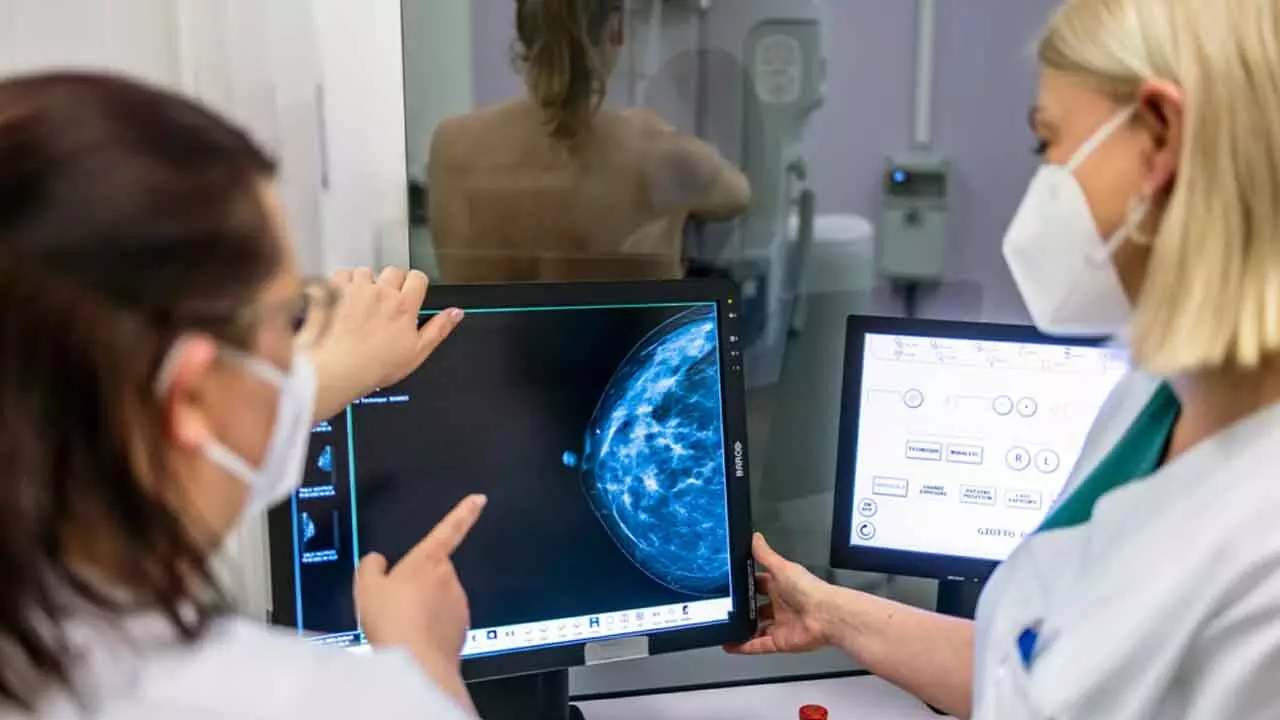Women less likely to screen for breast cancer over false-positive mammograms
Share :

While early detection of breast cancer via mammograms -- an x-ray scan -- is crucial for better treatment outcomes, false positive results, meaning which do not result in a cancer diagnosis, are likely to deter women from further screenings, according to a study.
Researchers from the University of California-Davis in the US said that abnormal findings on mammograms can lead to women being recalled for additional imaging and biopsies, many of which turn out to be false positives.
Breast cancer is the second most common cancer worldwide.
Of more than 3.5 million screening mammograms on over 1 million patients aged 40 to 73, about 77 per cent of women with a negative result from a mammogram returned for subsequent screening.
However, the percentage dropped to 61 per cent after a false-positive finding requiring another mammogram in six months to confirm the results and 67 per cent if a biopsy was recommended, revealed the research, published in the Annals of Internal Medicine.
“The finding raises concerns about the potential unintended consequence of false-positive results, where women may avoid screening mammograms in the future,” said lead author Diana Miglioretti, cancer centre researcher at UC Davis.
It can also have financial implications for patients and cause significant emotional anxiety, said the team
The impact was even more pronounced for women who received false-positive results on two consecutive mammograms recommending short-interval follow-up -- only 56 per cent returned their next screening mammogram, they added, expressing concern.
“It is important for women with false-positive results to continue screening every one to two years,” Miglioretti said, “Having a false-positive result, especially if it results in a diagnosis of benign breast disease, is associated with an increased risk of being diagnosed with breast cancer in the future.”
False-positive results are common, especially among younger women. They occur in 10-12 per cent of mammograms in women aged 40-49. After 10 years of annual screenings, 50-60 per cent of women can expect at least one false-positive and 7-12 per cent at least one false-positive with a biopsy recommendation.
Miglioretti said being recalled for additional imaging “is a normal and common part of the screening process”, and not because of cancer.














